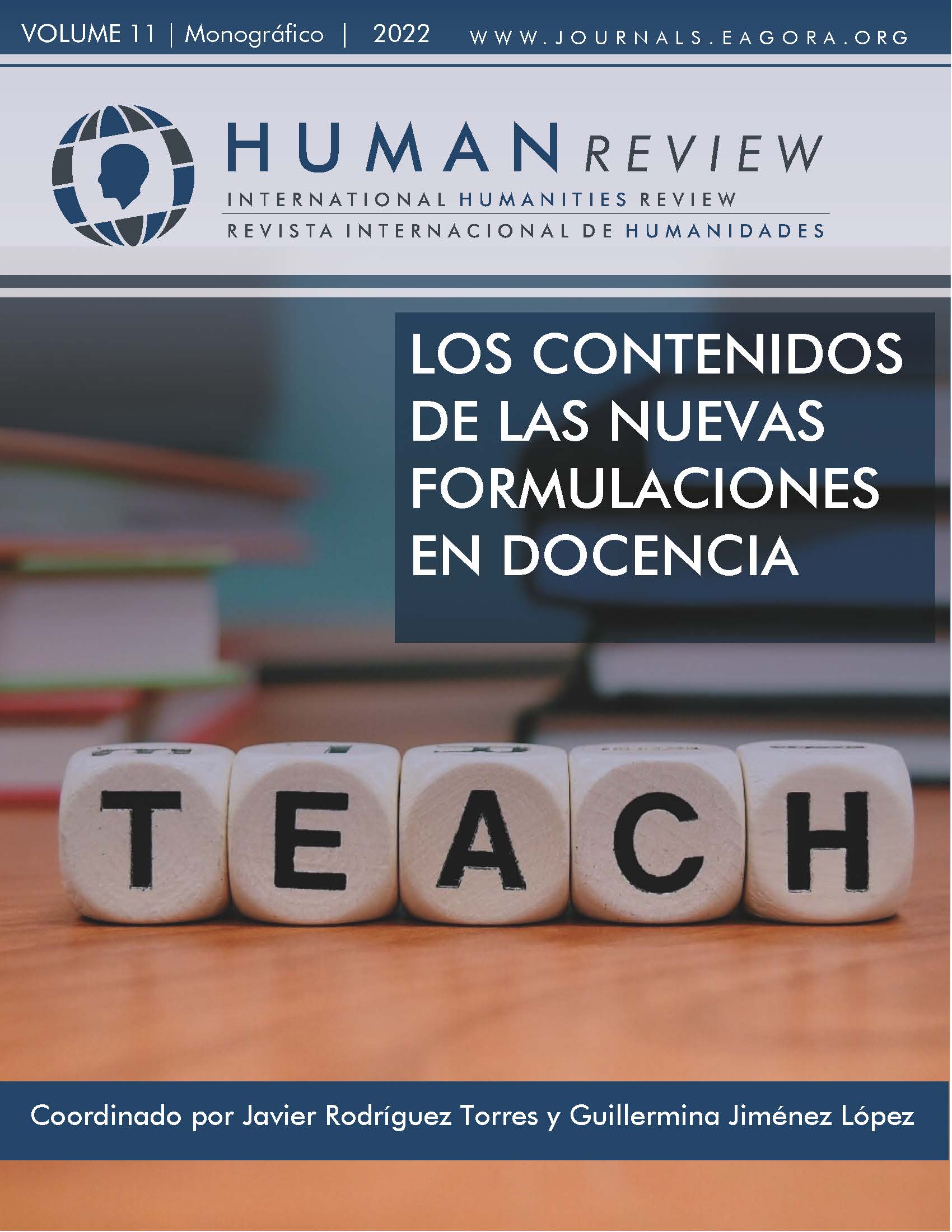Areas of Interest for the Incorporation of Gamification in Industrial Engineering
Analysis of three universities in Colombia
Keywords:
Learning, Teaching, Education, Industrial Engineering, Gamification, Teacher, StudentAbstract
This research determined critical areas of interest for the incorporation of playful activities in programs of industrial engineering in three Colombian universities, from the perception of students and teachers. The current nature of the participating programs and their curricula were evaluated, which allowed the identification of common themes among the educational institutions. A total of 125 surveys were applied, 109 to students (87.2%) and 16 to teachers (12.8%). Teachers consider topics in the area of Operations Research to be more complex, while for students it was mainly in Production topics. No significant correlations were found between the three universities.
References
Capote León, G. E., Rizo Rabelo, N., & Bravo López, G. (2016). La formación de ingenieros en la actualidad. Una explicación necesaria. Revista Universidad y Sociedad, 8(1), 21–28. http://rus.ucf.edu.cu/
Coronado Ortega, M. A., Oliveros Ruiz, M. A., Valdez Salas, B., & Domínguez Osuna, P. M. (2019). Retos de ingeniería: enfoque educativo STEM+A en la revolución industrial 4.0. Innovación Educativa, 19(80), 15-32. https://www.redalyc.org/articulo.oa?id=179462794002
Doyle-Kent, M., & Watson, E. (2021). D&I in Engineering Education, past, present, and future: A Country Case Study of Ireland. IFAC-PapersOnLine, 54(13), 564–569. https://doi.org/10.1016/J.IFACOL.2021.10.509
García Sánchez, F., García Bern, J., Fernandez Alemán, J. L., & Toval, A. (2019). Aplicación de juegos serios en la enseñanza de Ingeniería de Requisitos y Gestión de Proyectos. Actas de las Jenui, 4, 7 - 14. https://aenui.org/actas/pdf/JENUI_2019_004.pdf
Gómez, R. L., & Suárez, A. M. (2021). Gaming to succeed in college: Protocol for a scoping review of quantitative studies on the design and use of serious games for enhancing teaching and learning in higher education. International Journal of Educational Research Open, 2, 100021. https://doi.org/10.1016/J.IJEDRO.2020.100021
González-Velasco, C., Feito-Ruiz, I., González-Fernández, M., Álvarez-Arenal, J. L., & Sarmiento-Alonso, N. (2021). Does the teaching-learning model based on the flipped classroom improve academic results of students at different educational levels? Revista Complutense de Educacion, 32(1), 27–39. https://doi.org/10.5209/RCED.67851
Lopez, M., Arriaga, J. G. C., Nigenda Álvarez, J. P., González, R. T., Elizondo-Leal, J. A., Valdez-García, J. E., & Carrión, B. (2021). Virtual reality vs traditional education: Is there any advantage in human neuroanatomy teaching? Computers & Electrical Engineering, 93, 107282. https://doi.org/10.1016/J.COMPELECENG.2021.107282
López Vázquez, J. A., Casteleiro-Roca, J-L., Jove, E., Zayas-Gato, F.; Quintián, H., & Calvo-Rolle, J-L. (2021). Data Collection Description for Evaluation and Analysis of Engineering Students Academic Performance. Advances in Intelligent Systems and Computing, 1266, 317-328, https://doi.org/10.1007/978-3-030-57799-5_33
Lugaresi, G., Frigerio, N., & Matta, A. (2020). A New Learning Factory Experience Exploiting LEGO For Teaching Manufacturing Systems Integration. Procedia Manufacturing, 45, 271–276. https://doi.org/10.1016/J.PROMFG.2020.04.106
Martínez Vélez, A. (2013). Emergencias de cambio: entre el modelo pedagógico tradicional y la necesidad de aprendizajes significativos. Praxis, 9(1), 73–82. https://dialnet.unirioja.es/servlet/articulo?codigo=5907268
Mirete, A. B., Maquilón, J. J., Mirete, L., & Rodríguez, R. A. (2020). Digital competence and university teachers’ conceptions about teaching. A structural causal model. Sustainability, 12(12), 4842. https://doi.org/10.3390/su12124842
Muñoz, C., Lira, B., Lizama, A., Valenzuela, J., & Sarlé, P. (2019). Teacher motivation for using game as a learning device. Interdisciplinaria, 36(2), 233–250. https://doi.org/10.16888/interd.2019.36.2.15
Olivares Olivares, S. L., López Cabrera, M. V., & Valdez-García, J. E. (2018). Aprendizaje basado en retos: una experiencia de innovación para enfrentar problemas de salud pública. Educación Médica, 19, 230–237. https://doi.org/10.1016/J.EDUMED.2017.10.001
Pando Cerra, P., Fernández Álvarez, H., Busto Parra, B., & Iglesias Cordera, P. (2022). Effects of Using Game-Based Learning to Improve the Academic Performance and Motivation in Engineering Studies. Journal of Educational Computing Research, 0(0), 1–25. https://doi.org/10.1177/07356331221074022
Pineda Tapia, J-L., Coaquira Mamani, D., Coaquira Huacani, L. C., De La Cruz Paredes, D. W., Jara Mamani, M. (2020). Importancia del trabajo en el laboratorio en los pocesos de enseñanza. ÑAWPARISUN, Revista de Investigación Científica, 3(1), 37-48. https://doi.org/10.47190/nric.v3i1.125
Ruiz Cruz, C. R., Castiblanco Jiménez, I. A., Cruz González, J. P., Pedraza Vega, L., & Londoño Restrepo, D. C. (2018). Juegos de simulación en la enseñanza de la Ingeniería Industrial: caso de estudio en la Escuela Colombiana de Ingeniería Julio Garavito. Entre Ciencia e Ingeniería, 12(23), 48-57. ISSN 1909-8367. https://doi.org/10.31908/19098367.3702
Salah, B., Khan, S., Ramadan, M. & Gjeldum, N. (2020). Integrating the Concept of Industry 4.0 by Teaching Methodology in Industrial Engineering Curriculum. Processes, 8, 1007; https://doi.org/:10.3390/pr8091007
Schmuck, R. (2021). Education and training of manufacturing and supply chain processes using business simulation games. Procedia Manufacturing, 55(C), 555–562. https://doi.org/10.1016/J.PROMFG.2021.10.076
Valencia Rodríguez, O., Rojas Sierra, C. y Gallego López, F.A. (2020). Ambientes de aprendizaje y creencias en la clase de matemáticas de estudiantes universitarios. III Congreso Internacional de Ciencias Básicas e Ingeniería - CICI 2020. http://cici.unillanos.edu.co/media2020/memorias/CICI_2020_paper_77.pdf
Vargas-Hernández, J. G., & Vargas-González, O. C. (2022). Strategies for meaningful learninginhigher education. Journal of Research in Instructional, 2(1), 47–64. https://doi.org/10.30862/jri.v2i1.41
Wood, R., & Shirazi, S. (2020). A systematic review of audience response systems for teaching and learning in higher education: The student experience. Computers & Education, 153, 103896. https://doi.org/10.1016/J.COMPEDU.2020.103896
Woschank, M., & Pacher, C. (2020). Teaching and Learning Methods in the Context of Industrial Logistics Engineering Education. Procedia Manufacturing, 51, 1709–1716. https://doi.org/10.1016/J.PROMFG.2020.10.238
Xin, X., Shu-Jiang, Y., Nan, P., ChenXu, D., & Dan, L. (2022). Review on A big data-based innovative knowledge teaching evaluation system in universities. Journal of Innovation & Knowledge, 7(3), 100197. https://doi.org/10.1016/J.JIK.2022.100197
Zuluaga Ramírez, C. M., & Gómez Suta, M. P. (2018). Propuesta de escenario lúdico para facilitar el proceso de enseñanza – aprendizaje en temáticas de Simulación Discreta. Scientia Et Technia. https://www.redalyc.org/journal/849/84958001008/84958001008.pdf

